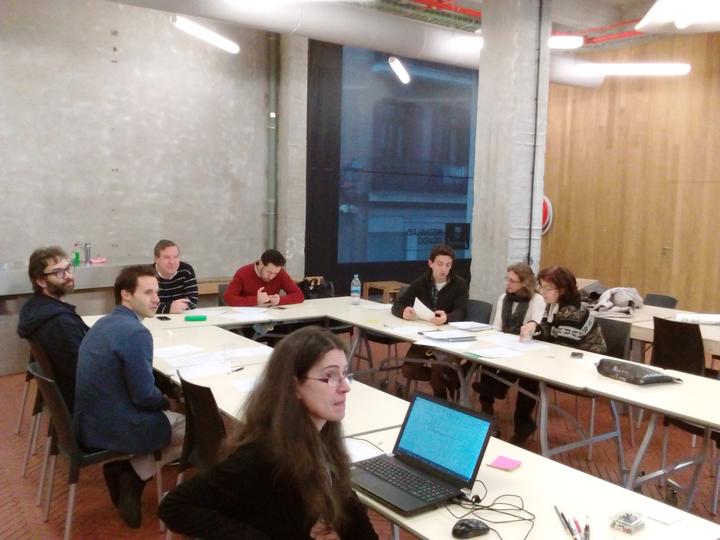Clarity

Como parte del grupo de referencia de CLARITY participo en la sesión del grupo focal sobre gobierno electrónico 2030 con representantes de administraciones locales y regionales.
Nota de CLARITY
E-government and open government experts participated in a meeting held under the name E-Government 2030 that took part on January the 27th in Medialab Prado (Madrid). The session was useful to speak and reflect on the next steps to give on concerning electronic governance. The experts –included some members of CLARITY Project- focused their efforts in what there are already considering to be services of open government.
Throughout the day, the attendees –members of local and regional administrations with experience in the design of services of electronic governance, TICs experts, companies that work with the public sector, representatives of the civil society and academics- attempted to establish a vision on for electronic governance in 2030.
After the presentation of the targets and the assumptions surrounding eGovernment –generated by using a a focus group methodology developed by a team of experts of Waag Society (Amsterdam) – the moderator of the group, Oscar Corcho, focused the meeting and the discussions on two aspects of the electronic governance: the role of the public administrations and the state of the technology; two elements that have been considered of major impact in the development of services of electronic governance.
After the subsequent discussions on the different assumptions previously presented, Oscar Corcho asked the participants for a proper opinion about the specific topics above stated, an opinion that offered the general vision that will serve as starting point to prepare a report based on the following questions:
- What will be the role of the public administrations in 2030
- What are the types of services of electronic governance that are important to be developed in 2030 to meet main citizen needs
- What are the risks and opportunities for the electronic governance services?
The group of experts has been the starting point of the meetings that –throughout the next months- will form base of a possible future administration; the electronic governance in 2030.
The findings from the focus group will be analysed, along with the focus groups held in Sweden and The Netherlands and will be published in a CLARITY briefing paper about considerations for future open eGovernment in March 2017
Notas
Administración
- Servicios de sectores que van a estar más
- Alertas de concursos
- Trámites y estandarización de procedimientos: adivinar si ya está dado (registro de lobbis, datos de contrataciones anteriores), entiendo y cumplo los requisitos, estandarizar los procedimientos.
- Servicios que la administración puede prestar a las empresas porque los necesita: por ejemplo, visualizaciones de datos.
- Marketplace de datos para empresas, para que se hagan una idea de los datos de mercado reales. Por ejemplo en el sector automóvil se ha visto que es mejor compartir datos de motores que no hacerlo. Nagore recuerda un servicio de telecos que también lo van a hacer.
- ¿Abrir el concepto de obra pública innovadora?
- Plataforma para creación de UTEs de autónomxs y PYMES: positivizar el crowdsourcing, un marketplace de skills.
- Seguridad jurídica en las empresas
Apellidos
- Científicos, decisiones basadas en datos, objetividad
- Adaptabilidad
- Proactividad.
- Eficacia.
- Seguridad
- Tecnológicamente punteros.
- Innovación en los procesos, transformación digital.
Empresas
- Facilidad en la tramitación, automático.
- Estándares para la tramitación.
- Facilidad
- Procesos tecnológicos.
- Facilidad para la creación de UTEs, coordinadas por la admón.